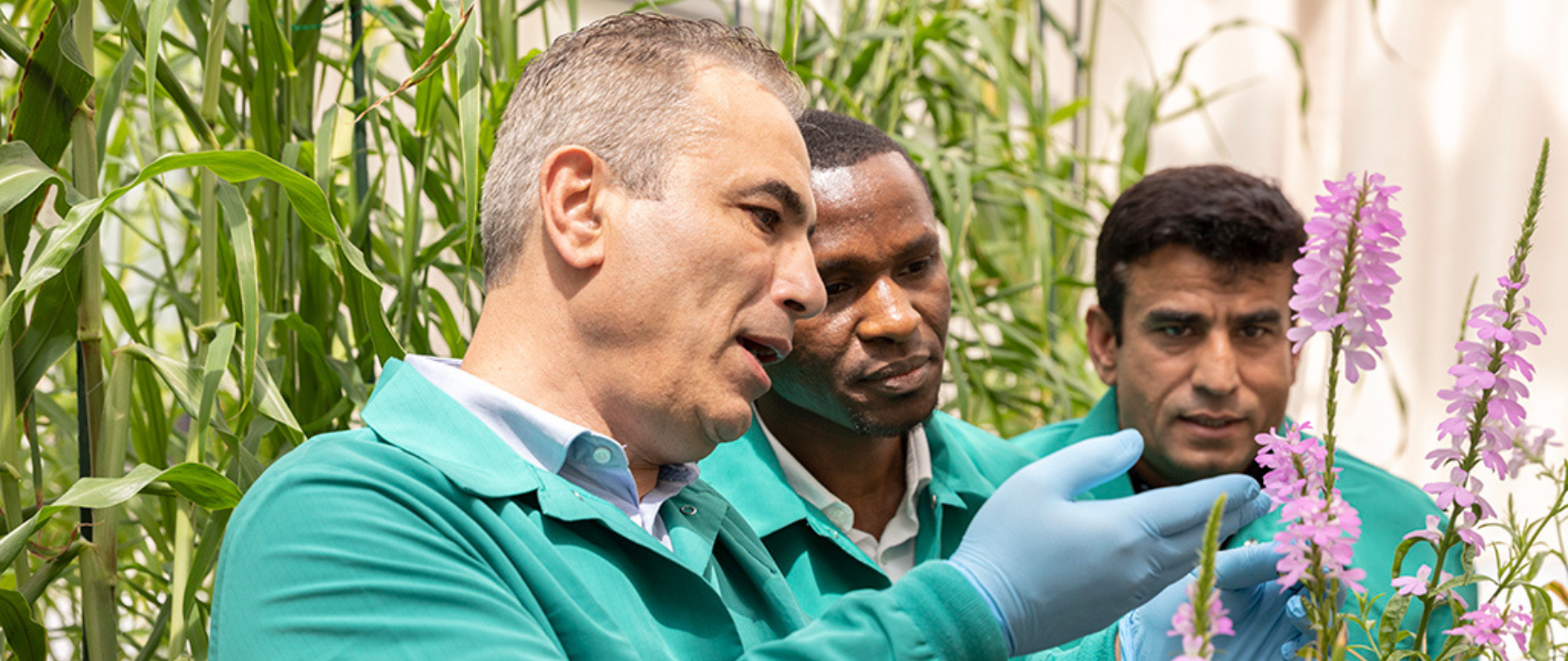Witchweed, scientifically known as Striga hermonthica, is a parasitic plant that attacks cereal crops, including pearl millet, a staple food for African smallholder farmers. In sub-Saharan Africa, it is estimated to cause annual losses of more than $7 billion, impacting the livelihoods and food security of an estimated 300 million people.
The UN Sustainable Development Goal 1 and 2 includes reducing poverty and hunger and supporting rural agriculture and economic development in developing countries. The Striga Solutions team aims towards these goals by developing hormone-based control strategies and using cutting-edge molecular genetics in the fight against witchweed. Founded at KAUST, the project has grown into an ambitious global collaboration with experts in structural biology, chemistry, bioinformatics, agronomy and weed science, genetics, and pearl millet breeding from Saudi Arabia, Japan, the Netherlands, Burkina Faso, and Kenya.
Supported by a $5 million grant from the Bill and Melinda Gates Foundation, scientists working on the multidisciplinary research project have already made some promising breakthroughs. They have developed efficient hormone-based methods to induce Striga seeds to germinate prematurely and die, with a field trial in Burkina Faso showing a reduction in Striga growth by up to 65%. They also identify genetic targets for breeding and generating Striga-resistant pearl millet varieties.
Salim Al Babili, Professor of Plant Science in KAUST’s Biological and Environmental Science and Engineering division, leads the project that is already showing great potential in the fight against food insecurity, with a positive impact on smallholder farmers in sub-Saharan Africa, something that motivates the whole team.
“By providing the correct scientific environment, the required infrastructure, and further financial assistance, KAUST has made our progress in combating Striga possible. Striga Solutions is just one example of how KAUST supports basic and applied plant science. Furthermore, it establishes sustainable agricultural systems that can substantially contribute to achieving the UN Sustainable Development Goals No Poverty and Zero Hunger”, says Prof. Al Babili.
Find more about Striga Solutions here.




